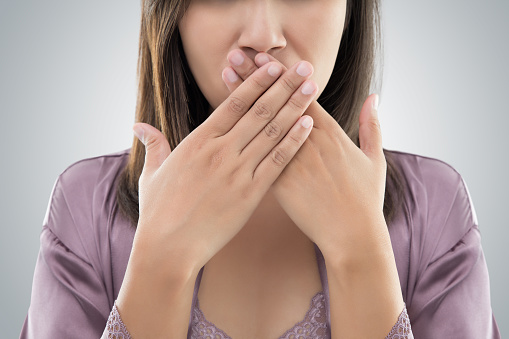Uncommon Causes of Bad Breath
Posted on 1/15/2025 by Premier Dental Center |
 We all know the feeling: stepping a little too close to someone and catching a whiff of unpleasant breath. It's awkward, embarrassing, and can even be a sign of something more serious. While most bad breath, or halitosis, can be traced back to poor oral hygiene, there are a few uncommon culprits you might not know about. We all know the feeling: stepping a little too close to someone and catching a whiff of unpleasant breath. It's awkward, embarrassing, and can even be a sign of something more serious. While most bad breath, or halitosis, can be traced back to poor oral hygiene, there are a few uncommon culprits you might not know about.
Beyond the Basics: Uncommon Causes of Bad Breath
So you brush and floss regularly, use mouthwash, and still find yourself battling bad breath? It might be time to look beyond the usual suspects. Here are some lesser-known causes of halitosis:
1. Medications: Certain medications, like antidepressants, antihistamines, and diuretics, can cause dry mouth, which in turn can lead to bad breath.
2. Medical Conditions: Some medical conditions, such as diabetes, acid reflux, and respiratory infections, can contribute to bad breath.
3. Diet: Certain foods, like garlic, onions, and coffee, can leave behind strong odors that linger in your breath.
4. Smoking: Smoking not only damages your oral health but also leaves behind a persistent bad odor.
5. Dry Mouth: Dry mouth, also known as xerostomia, can be caused by various factors, including medications, dehydration, and medical conditions. Saliva helps to wash away food particles and bacteria, so when your mouth is dry, these can build up and lead to bad breath.
6. Tonsil Stones: These are small, white or yellow lumps that can form in the crevices of your tonsils. They are made up of food debris, bacteria, and mucus, and can give off a foul odor.
7. Other Uncommon Causes: In rare cases, bad breath can be a sign of more serious conditions, such as liver or kidney disease.
What You Can Do
If you're concerned about bad breath, the first step is to see your dentist. They can rule out any underlying medical conditions and recommend treatment options. In addition to good oral hygiene habits, your dentist may suggest:
| • |
Using a tongue scraper: This helps remove bacteria and food particles from the back of your tongue, where they can contribute to bad breath. |
| • |
Using a fluoride mouthwash: This can help to reduce dry mouth and kill bacteria. |
| • |
Chewing sugar-free gum: This can stimulate saliva production and help to wash away food particles. |
| • |
Drinking plenty of water: Staying hydrated helps to keep your mouth moist and can help to flush away odor-causing bacteria. |
Restorative Dentistry: Addressing the Root Cause
In some cases, bad breath can be a symptom of a more serious dental problem, such as gum disease or a cavity. If this is the case, your dentist may recommend restorative dentistry treatments to address the underlying issue. These treatments can help to eliminate the source of the bad breath and improve your overall oral health.
The Bottom Line
While bad breath is often caused by poor oral hygiene, there are a number of other factors that can contribute to it. If you have persistent bad breath, it's important to see your dentist to rule out any underlying medical conditions and get the right treatment. By addressing the root cause of the problem, you can finally say goodbye to bad breath and enjoy fresh, confident breath.
|
|